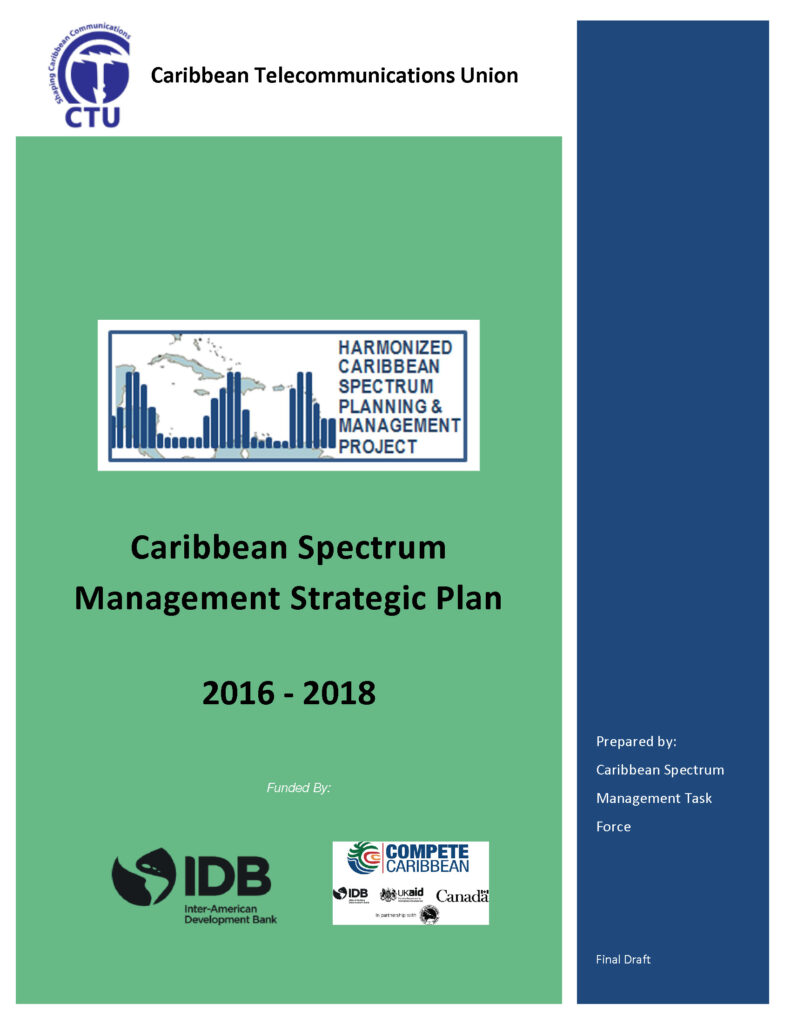Caribbean Spectrum Planning and Management
Definition of Spectrum Management
Spectrum management refers to the task of optimising use of the range (or spectrum) of radio-communication frequencies in order to meet the simultaneous demands of all users for successful wireless communications. This management takes place on national, regional and global bases.
Objective of the CTU’s Caribbean Spectrum Planning and Management
The objective of Caribbean Spectrum Planning and Management is to deepen the harmonisation of spectrum planning and management policies and practices across the region. This initiative is managed by the Caribbean Telecommunications Union (CTU) to promote improved coordination in the use of radio frequencies at the regional level by working with governments, telecommunication regulators, operating companies and industry developers.
This goal is achieved through the following two committees:
- Spectrum Management Task Force – This multi-stakeholder technical group includes government policy makers, telecommunications regulators, telecommunications operators, industry developers and academia and focuses on technical issues.
- Spectrum Management Steering Committee – Includes senior government policy-makers and regulators; this group oversees the work of the Task Force.
All 20 CTU member states, any non-member regional countries and other stakeholders are welcome to participate in this work.
Stakeholders and Beneficiaries
CTU member states, participating non-member regional countries, telecommunications regulators, operating companies, technology developers and researchers active in the Caribbean are stakeholders of this initiative. Governments benefit from the facilitation of policy development and the business sector and citizens of participating countries experience enhanced business opportunities and access to higher quality, more resilient wireless services.
Funding
This work is funded by the beneficiaries themselves and the CTU, through contributions of cash, services, facilities or human resources. From time to time, funding is also sourced from international development agencies or organisations such as the International Telecommunication Union, Inter-American Development Bank (IDB) on behalf of its eight CTU member countries (Bahamas, Barbados, Belize, Dominican Republic, Guyana, Jamaica, Suriname and Trinidad and Tobago), Compete Caribbean, a development agency with which the IDB is affiliated along with the Governments of Canada and the UK, on behalf of six eastern Caribbean CTU states who are not members of the IDB (Antigua and Barbuda, Dominica, Grenada, St. Kitts and Nevis, St. Lucia and St. Vincent and the Grenadines), other agencies of the European Union, the World Bank and the like.




